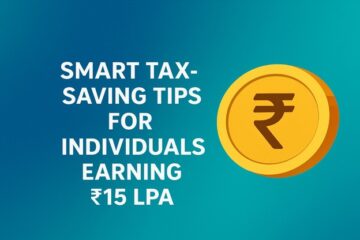Basics of Cryptocurrency
Cryptocurrency is a form of digital or virtual currency that is secured by cryptography, making it extremely difficult to counterfeit or double-spend. Unlike traditional currencies, cryptocurrencies are generally not issued by any central government or authority. Their transactions and records are maintained on a decentralized digital ledger called the blockchain, which is managed by a distributed network of computers (called nodes or miners)
Key Features:
- Decentralized: No single entity, like a bank or government, controls the currency or its transaction records.
- Digital and Encrypted: Exist only electronically, using cryptographic algorithms to secure transactions.
- Blockchain Technology: All transactions are grouped into blocks. These blocks are added in a linear, chronological order to the blockchain, a public ledger that is visible and verifiable by anyone
- Peer-to-Peer Transactions: Users can directly send and receive payments without intermediaries, making the process faster and, in many cases, cheaper.
Cryptocurrency Taxation in India
India has brought cryptocurrencies under its income tax net since the 2022 financial year, treating them as Virtual Digital Assets (VDAs). Here’s what you need to know about the taxation angle as of 2025:
How Crypto Is Taxed:
- Flat 30% Tax: All gains from transferring or selling cryptocurrencies (or other VDAs like NFTs) are taxed at a flat rate of 30%, plus a 4% health and education cess. This applies to everyone, regardless of their total income.
- No Deductions: Except for the actual cost of acquisition (what you paid to buy the crypto), no other expenses or losses can be deducted or set off. Losses from crypto transactions also cannot be carried forward or set off against any other income.
- Short-Term & Long-Term Gains Treated Similarly: There’s no distinction; both are taxed at the same flat rate.
- TDS at 1%: A 1% Tax Deducted at Source (TDS) is applied on transfers of crypto where the value exceeds ₹10,000 in a financial year (₹50,000 for some individuals). The exchange usually deducts this automatically; in other cases, the buyer must deduct and remit it.
- Gifted Crypto: If crypto is received as a gift, it is taxable in the hands of the receiver, subject to certain exemptions.
- Reporting Requirement: Gains from crypto must be reported under a specific schedule in the income tax return (Schedule VDA). Filing deadlines (for FY2024-25) are September 15, 2025 (regular) and December 31, 2025 (belated, with potential penalties).
Special Points:
- No basic exemption limit is available—every rupee of profit is taxed.
- Both individuals and businesses are covered under these rules.
- Non-compliance can result in notices from the Income Tax Department and penalties.
- Tax is applicable on mining, staking rewards, and airdrops as per prevailing rules.
In summary: If you trade, invest in, or receive cryptocurrencies in India, you’re liable for a 30% tax on profits, 1% TDS on qualifying transactions, and must comply with reporting obligations—regardless of whether the activity is personal or business.




